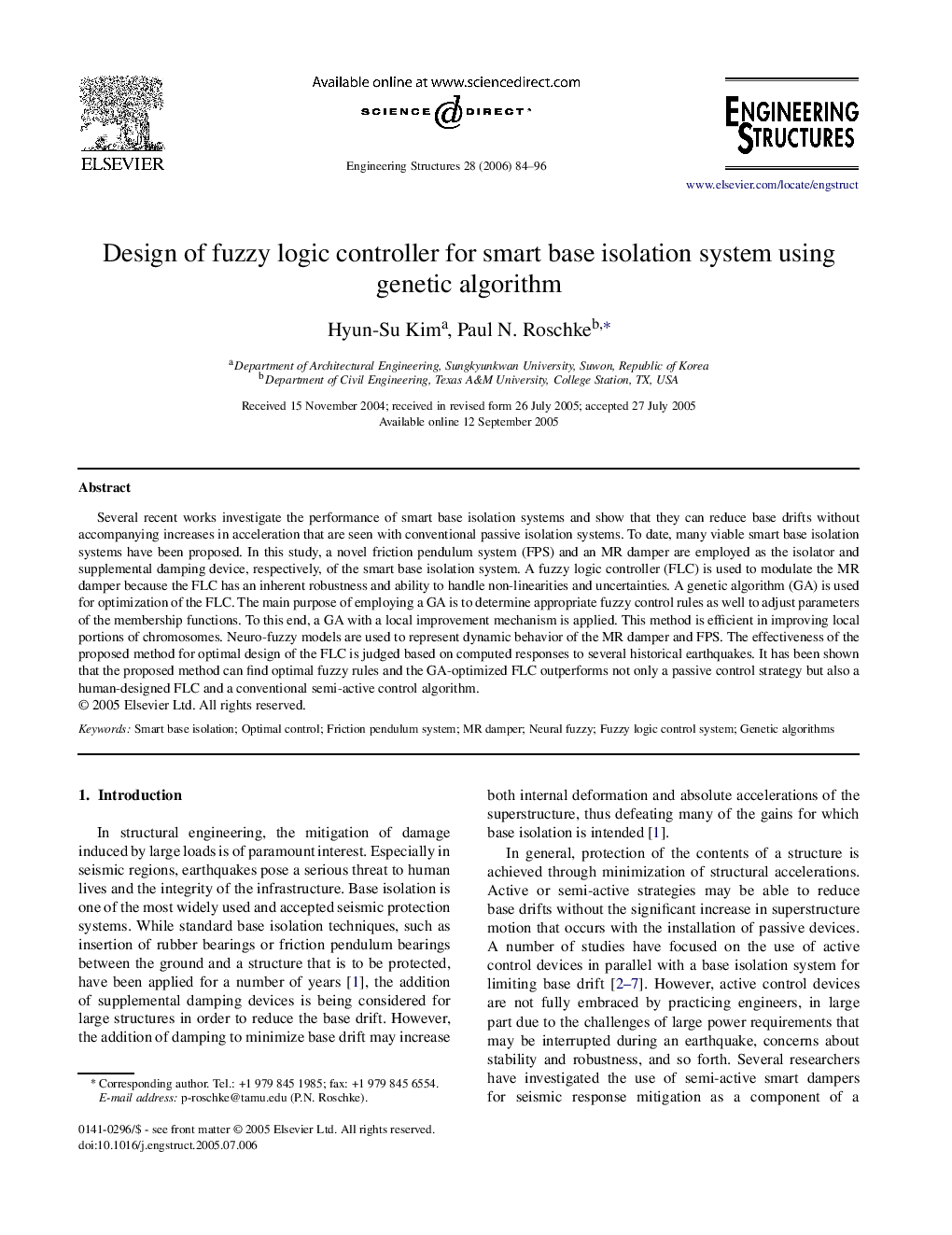| Article ID | Journal | Published Year | Pages | File Type |
|---|---|---|---|---|
| 269305 | Engineering Structures | 2006 | 13 Pages |
Several recent works investigate the performance of smart base isolation systems and show that they can reduce base drifts without accompanying increases in acceleration that are seen with conventional passive isolation systems. To date, many viable smart base isolation systems have been proposed. In this study, a novel friction pendulum system (FPS) and an MR damper are employed as the isolator and supplemental damping device, respectively, of the smart base isolation system. A fuzzy logic controller (FLC) is used to modulate the MR damper because the FLC has an inherent robustness and ability to handle non-linearities and uncertainties. A genetic algorithm (GA) is used for optimization of the FLC. The main purpose of employing a GA is to determine appropriate fuzzy control rules as well to adjust parameters of the membership functions. To this end, a GA with a local improvement mechanism is applied. This method is efficient in improving local portions of chromosomes. Neuro-fuzzy models are used to represent dynamic behavior of the MR damper and FPS. The effectiveness of the proposed method for optimal design of the FLC is judged based on computed responses to several historical earthquakes. It has been shown that the proposed method can find optimal fuzzy rules and the GA-optimized FLC outperforms not only a passive control strategy but also a human-designed FLC and a conventional semi-active control algorithm.
